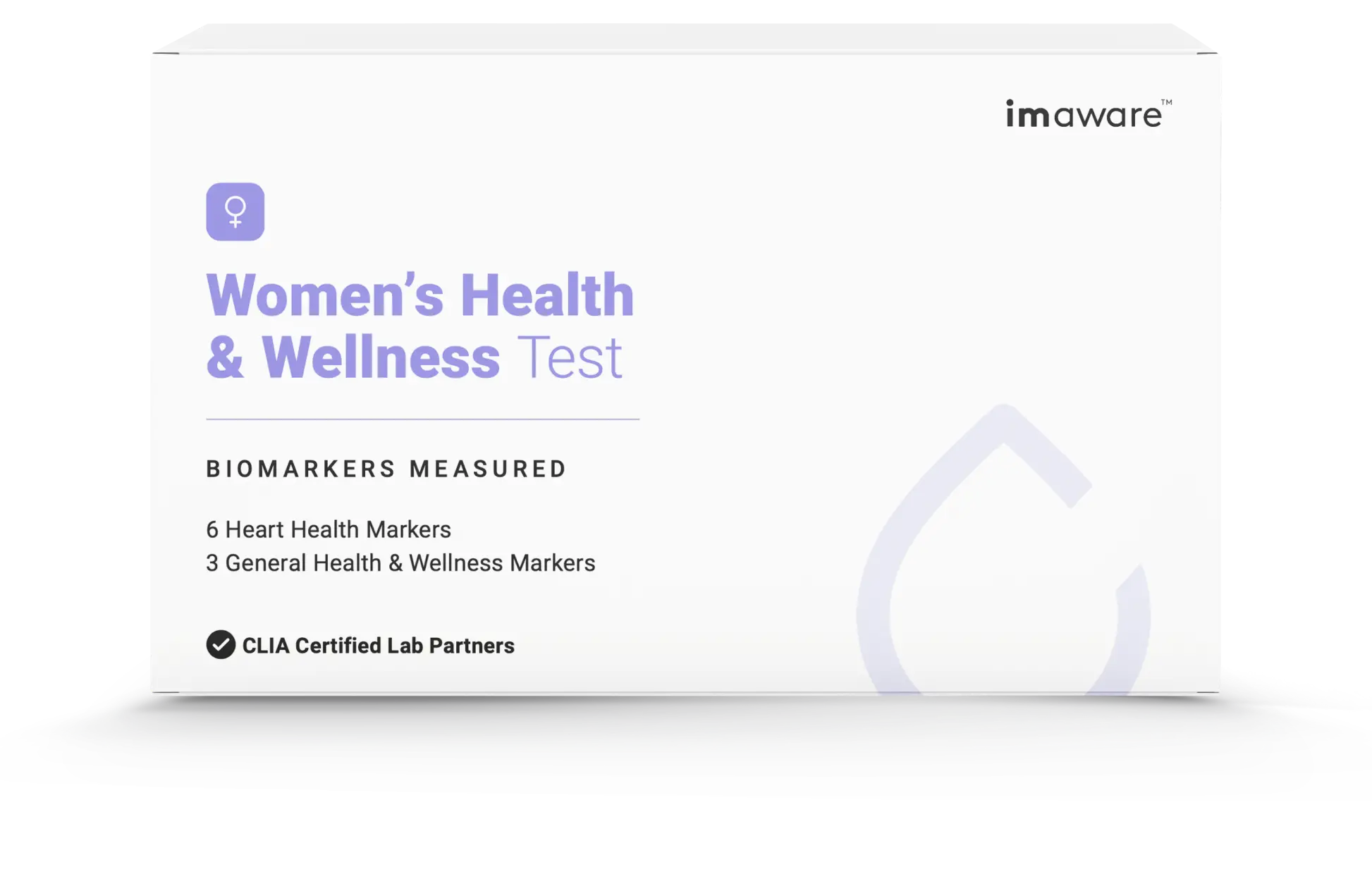What is ferritin?
Iron is an essential part of hemoglobin, which is found in red blood cells and carries oxygen throughout the body. Most of the iron outside of hemoglobin is stored as ferritin, a complex of iron and a protein that can be used to screen for iron deficiency¹. The ferritin test is a specific and sensitive measurement of your iron levels.
Which factors affect ferritin levels?
Pregnant women, children, and vegetarians have a higher risk of becoming iron deficient. Having an elevated ferritin level is far less common and may be a symptom of liver disease, hyperthyroidism, or infection.
What are the symptoms of low ferritin?
Low iron can cause fatigue, headaches, and dizziness. It also increases your risk of developing anemia, a condition characterized by having too few functional red blood cells².
What is a normal ferritin level?
The imaware medical advisory board recognizes the following as normal levels of ferritin:
- For men: 40–250 ng/mL
- For women: 12–150 ng/mL
What is a low level of ferritin?
Low ferritin is anything below the normal levels:
- For men: <40 ng/mL
- For women: <12 ng/mL
What does a low ferritin level mean?
Low ferritin usually indicates iron deficiency, which can lead to fatigue, headaches, and dizziness. It also increases your risk of developing anemia².
How can I improve my ferritin levels?
Low iron levels can be elevated by eating iron-rich foods—animal protein, dark green leafy vegetables, and iron-fortified cereals—and by taking an iron supplement. For excess iron levels, healthcare professionals may recommend dietary changes or iron chelation therapy.

References
- Fischbach FT, Dunning MB III, eds. 2009. Manual of Laboratory and Diagnostic Tests, 8th ed. Philadelphia: Lippincott Williams and Wilkins.
- Camaschella C. Iron-deficiency anemia. N Engl J Med 2015;372(19):1832–1843.

